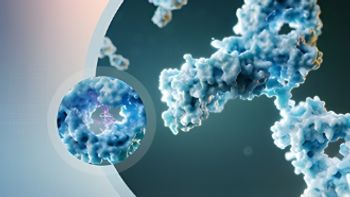
Pressurized Liquid Extraction of Amines in Meat
Researchers from the University of Barcelona (Barcelona, Spain) analyzed heterocyclic amines in meat samples using pressurized liquid extraction followed by liquid chromatography with tandem mass spectrometry detection (LC?MS-MS).
Researchers from the University of Barcelona (Barcelona, Spain) analyzed heterocyclic amines in meat samples using pressurized liquid extraction followed by liquid chromatography with tandem mass spectrometry detection (LC?MS-MS). Factors such as temperature and extraction time were varied to obtain the best analyte recovery. The optimum extraction method used a methylene chloride?acetone solution at 80 C for 10 min. The method reportedly reduces total extraction time by fourfold compared with the usual solid-phase extraction method.
Newsletter
Join the global community of analytical scientists who trust LCGC for insights on the latest techniques, trends, and expert solutions in chromatography.




